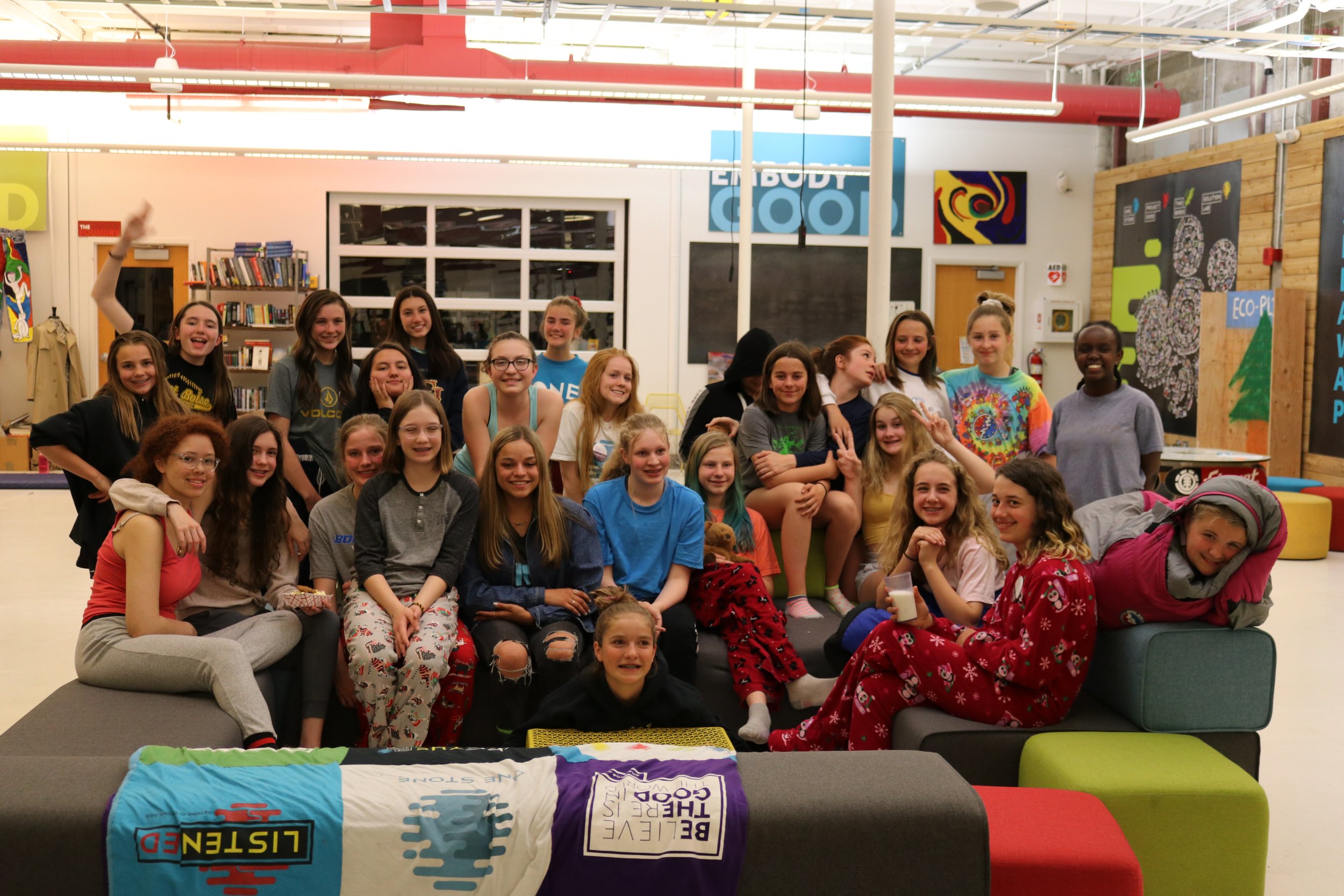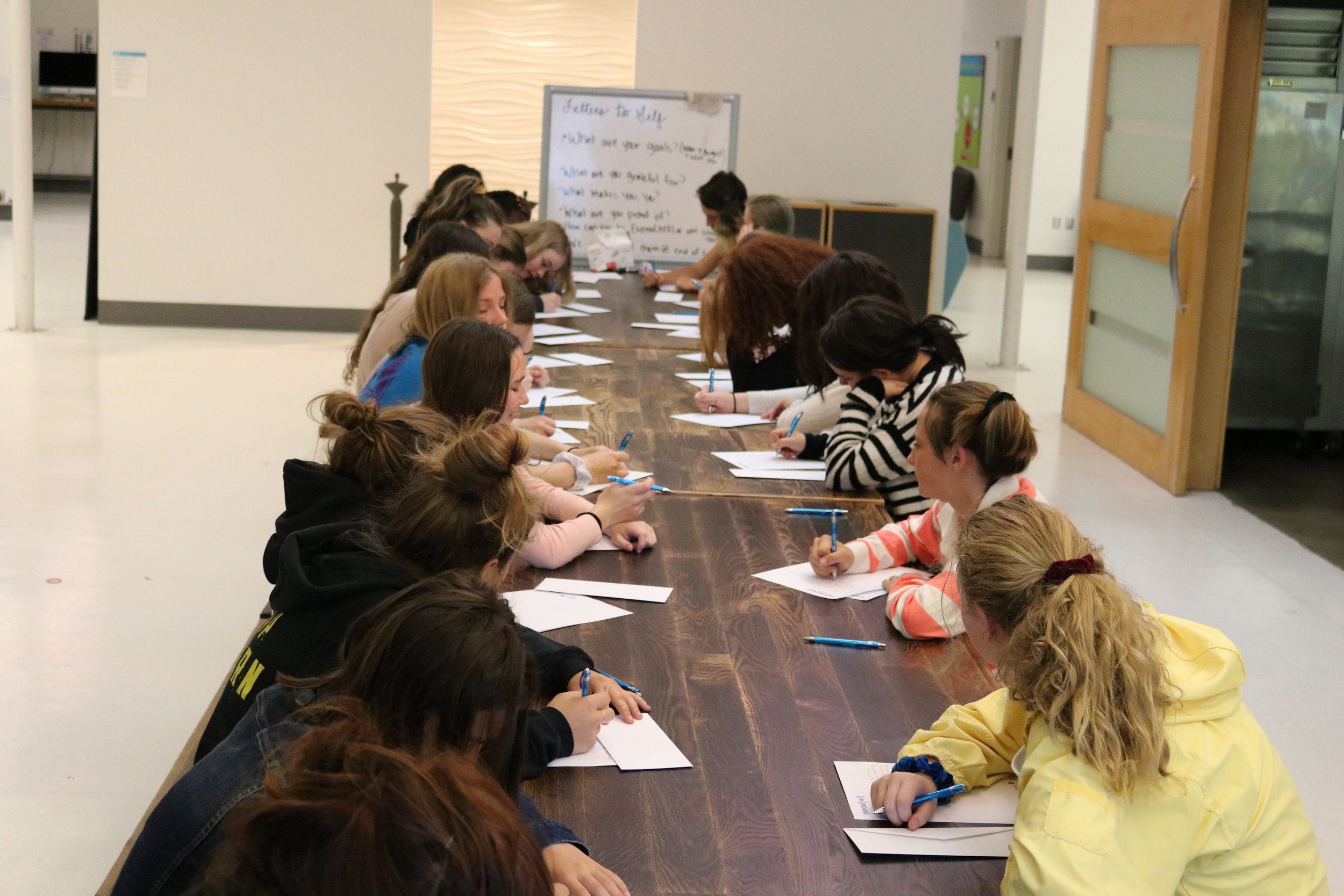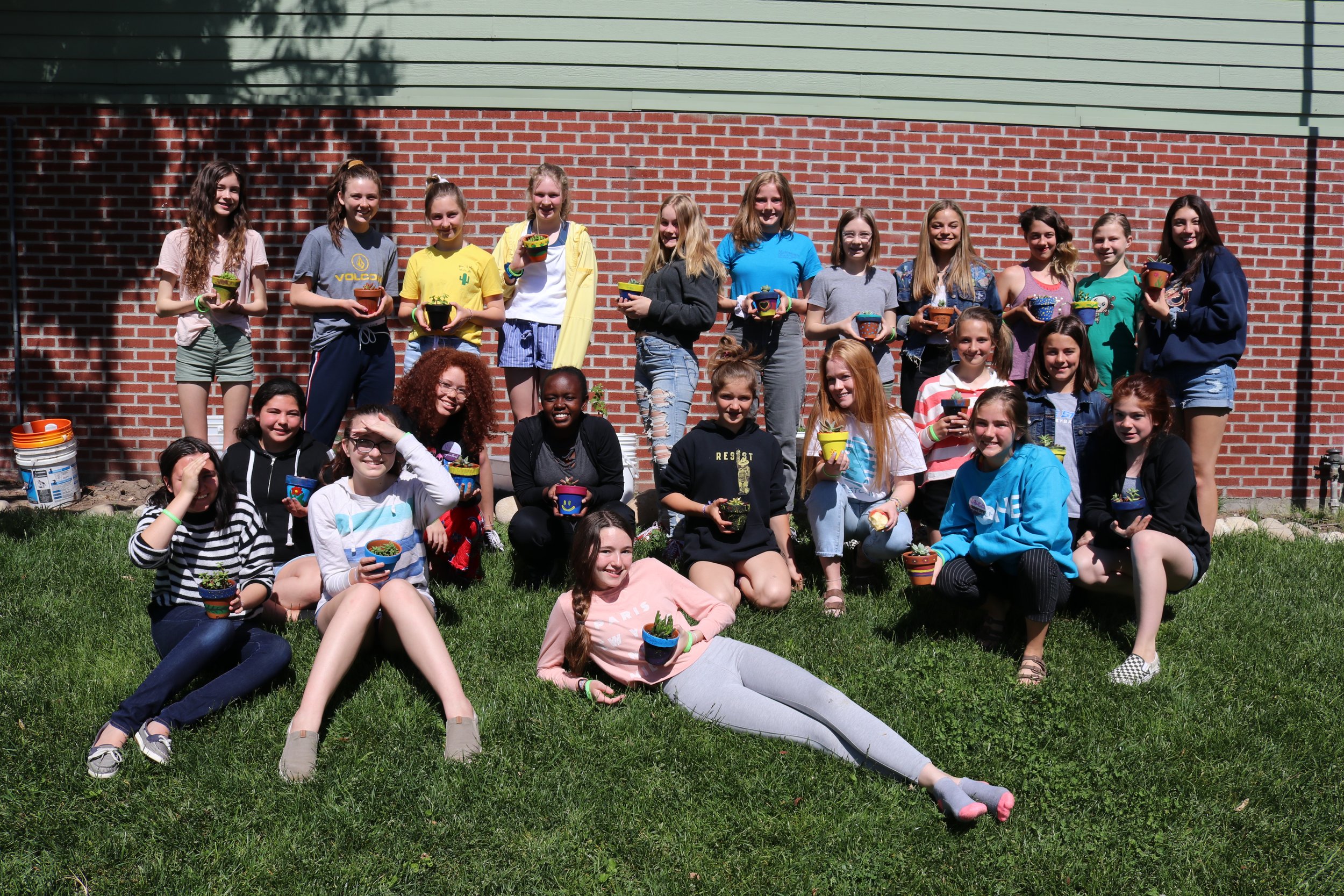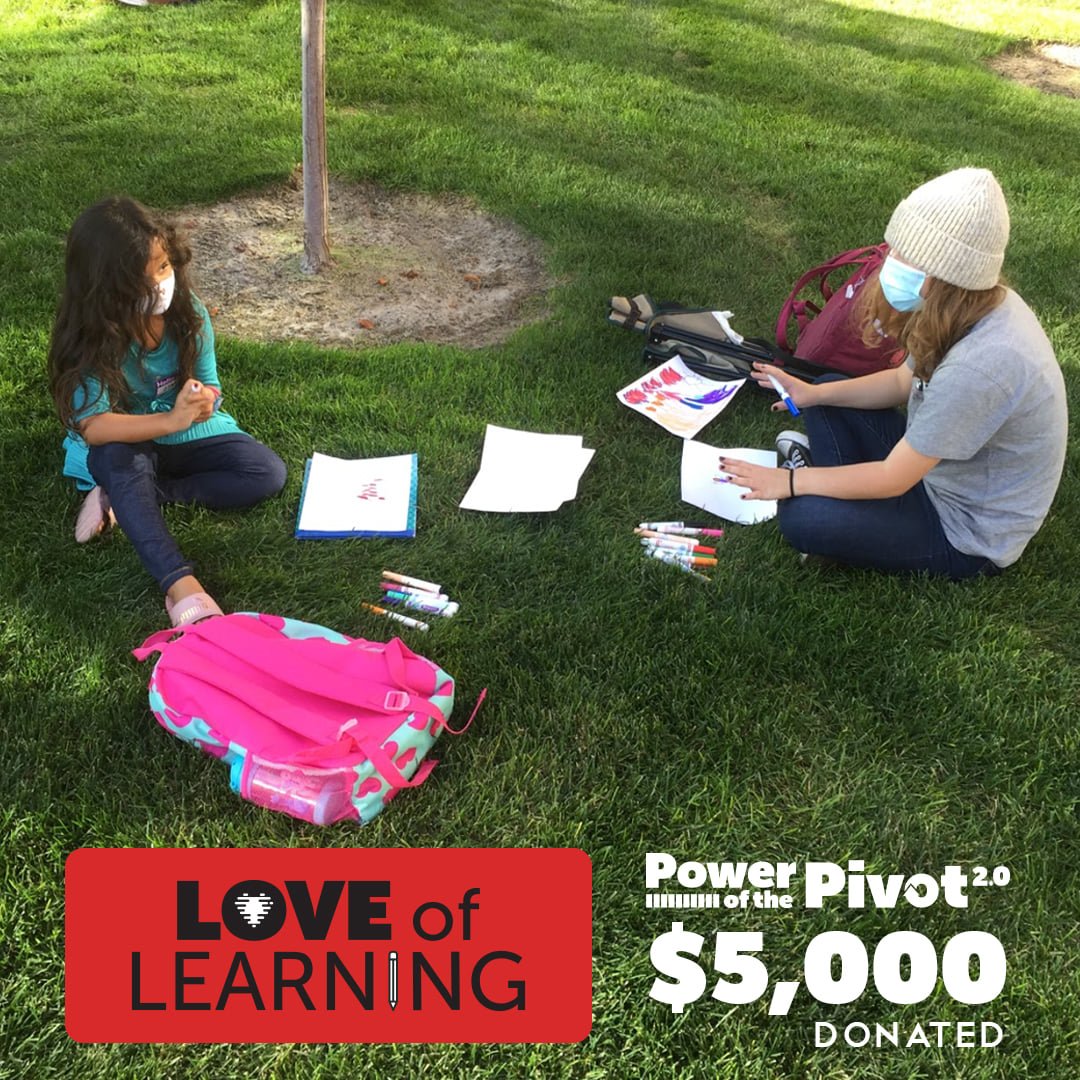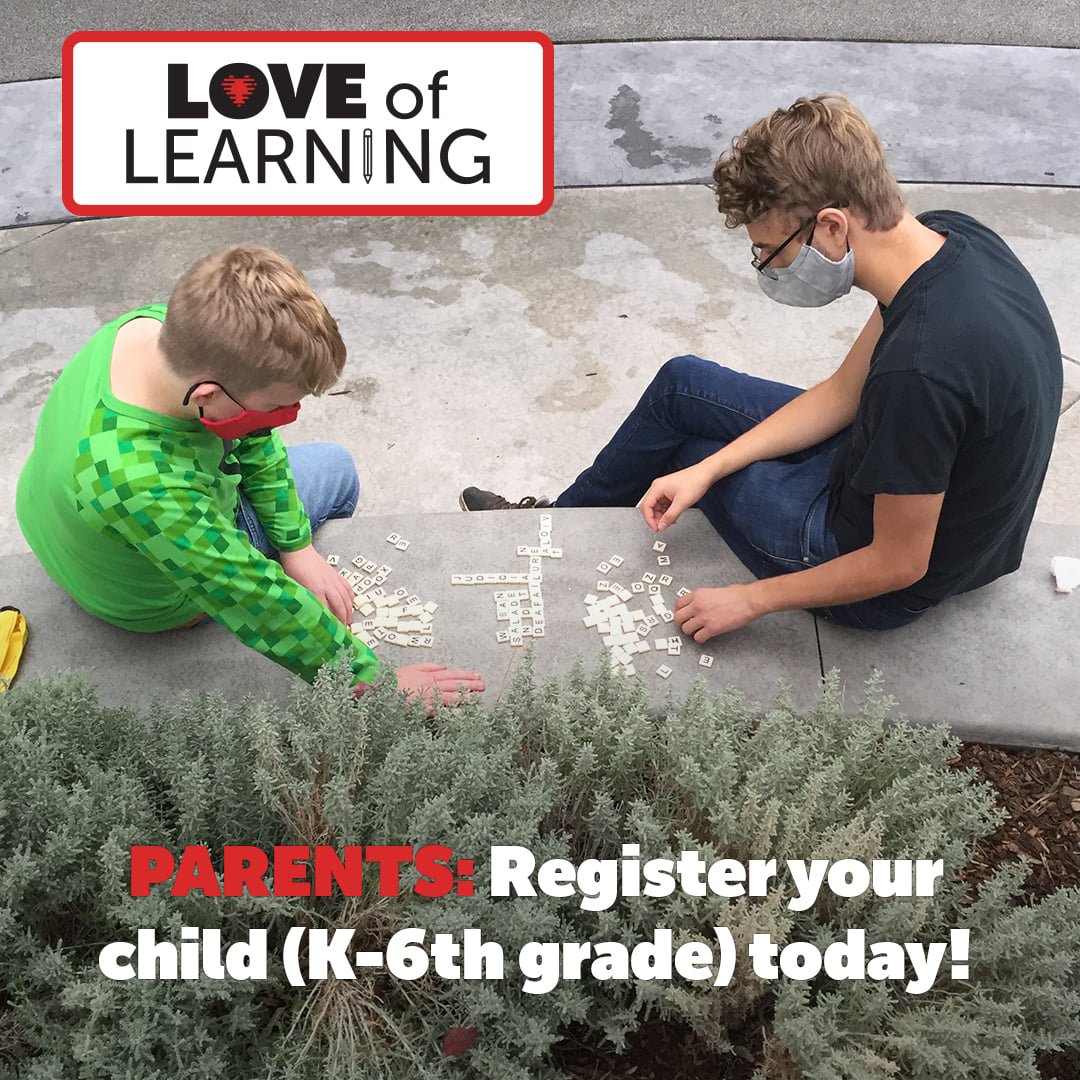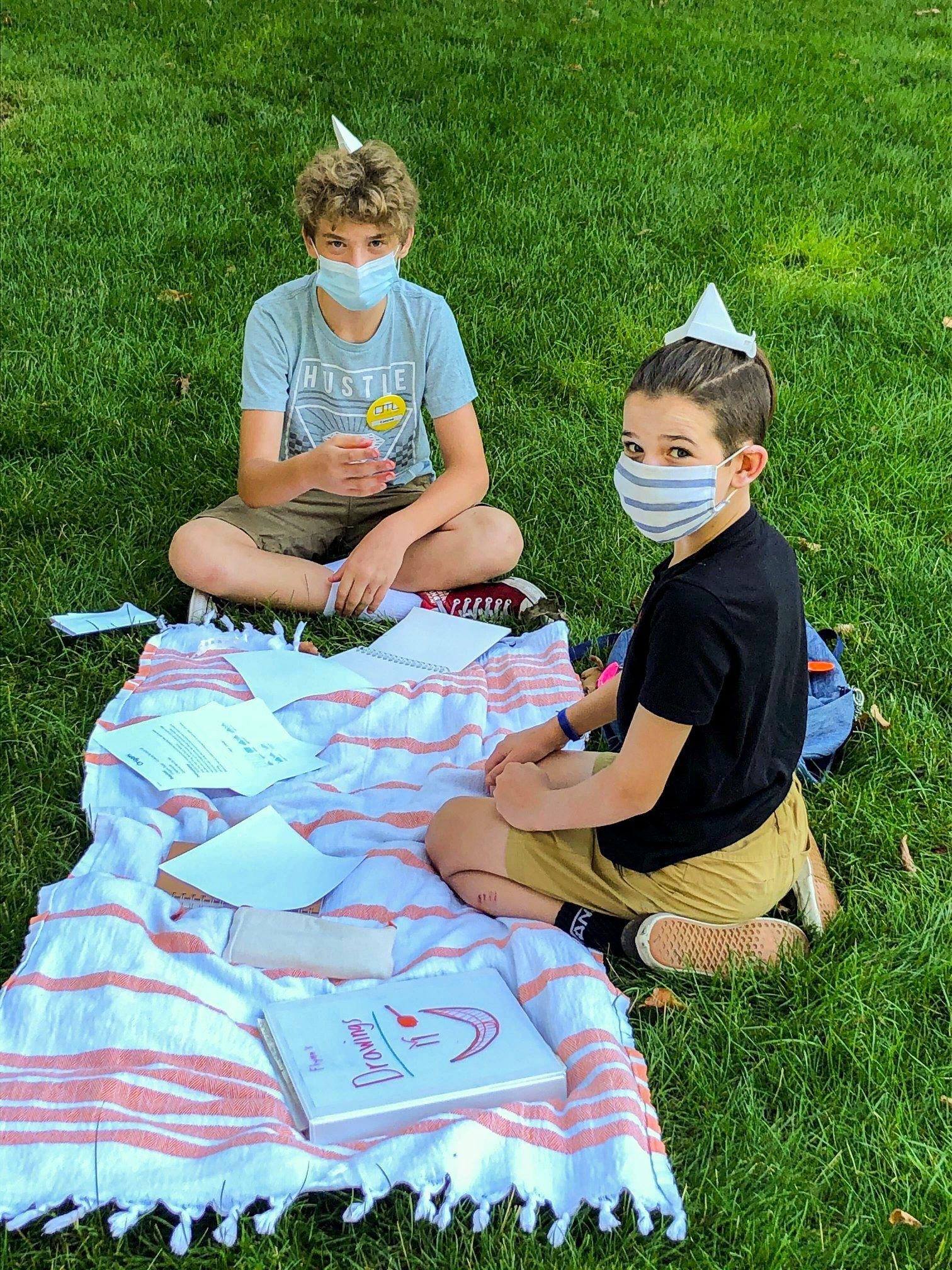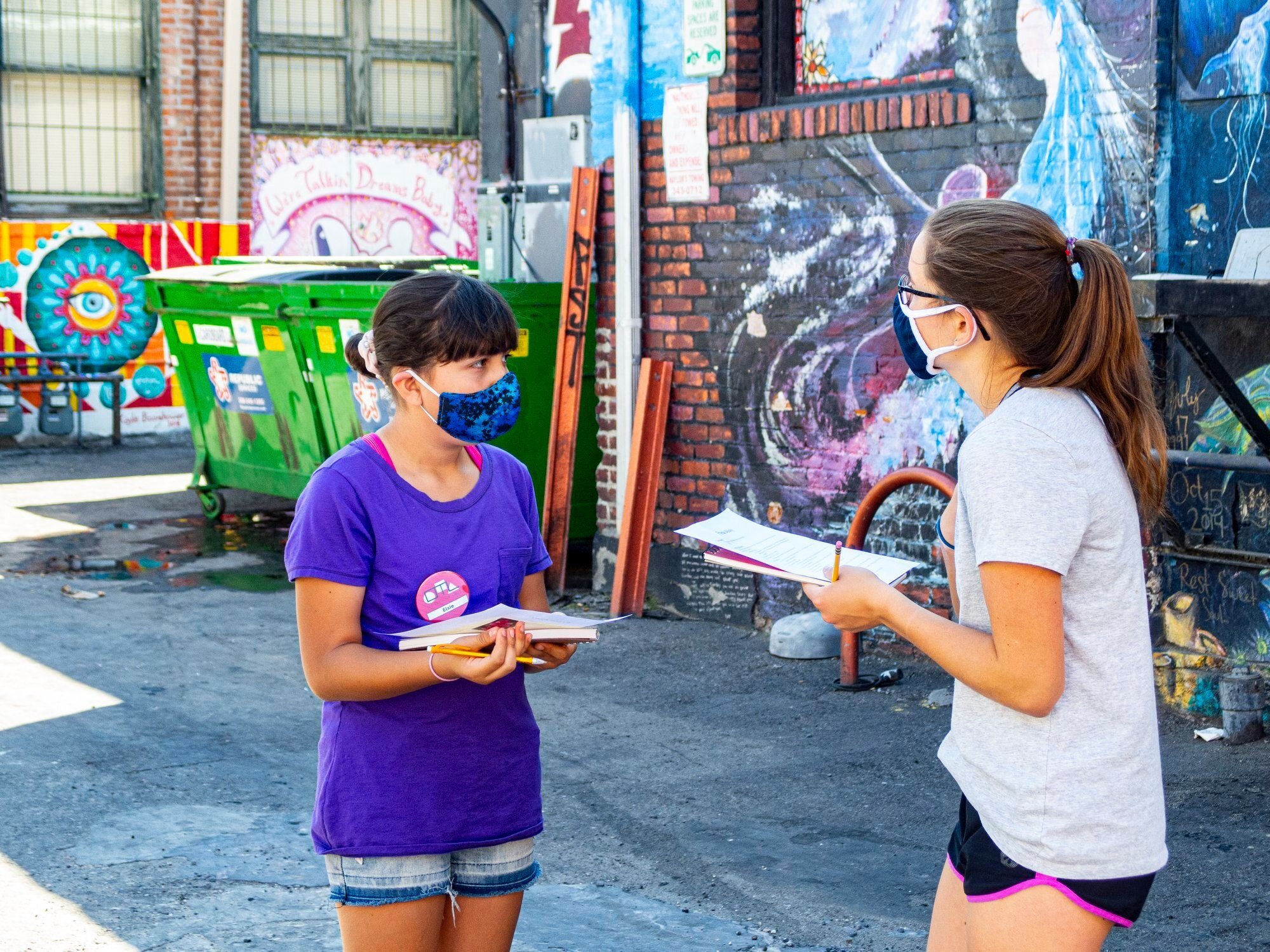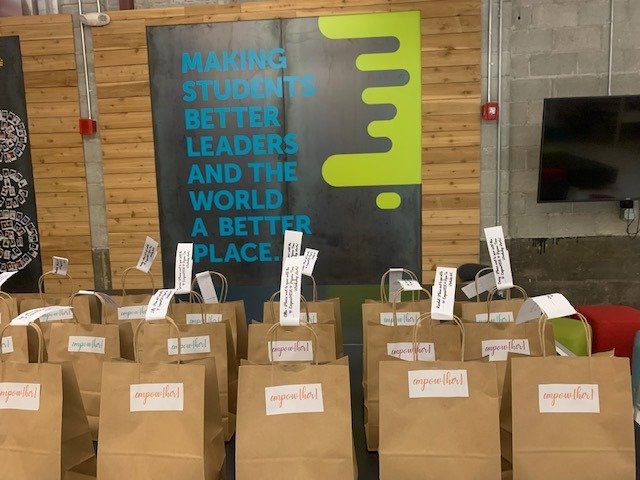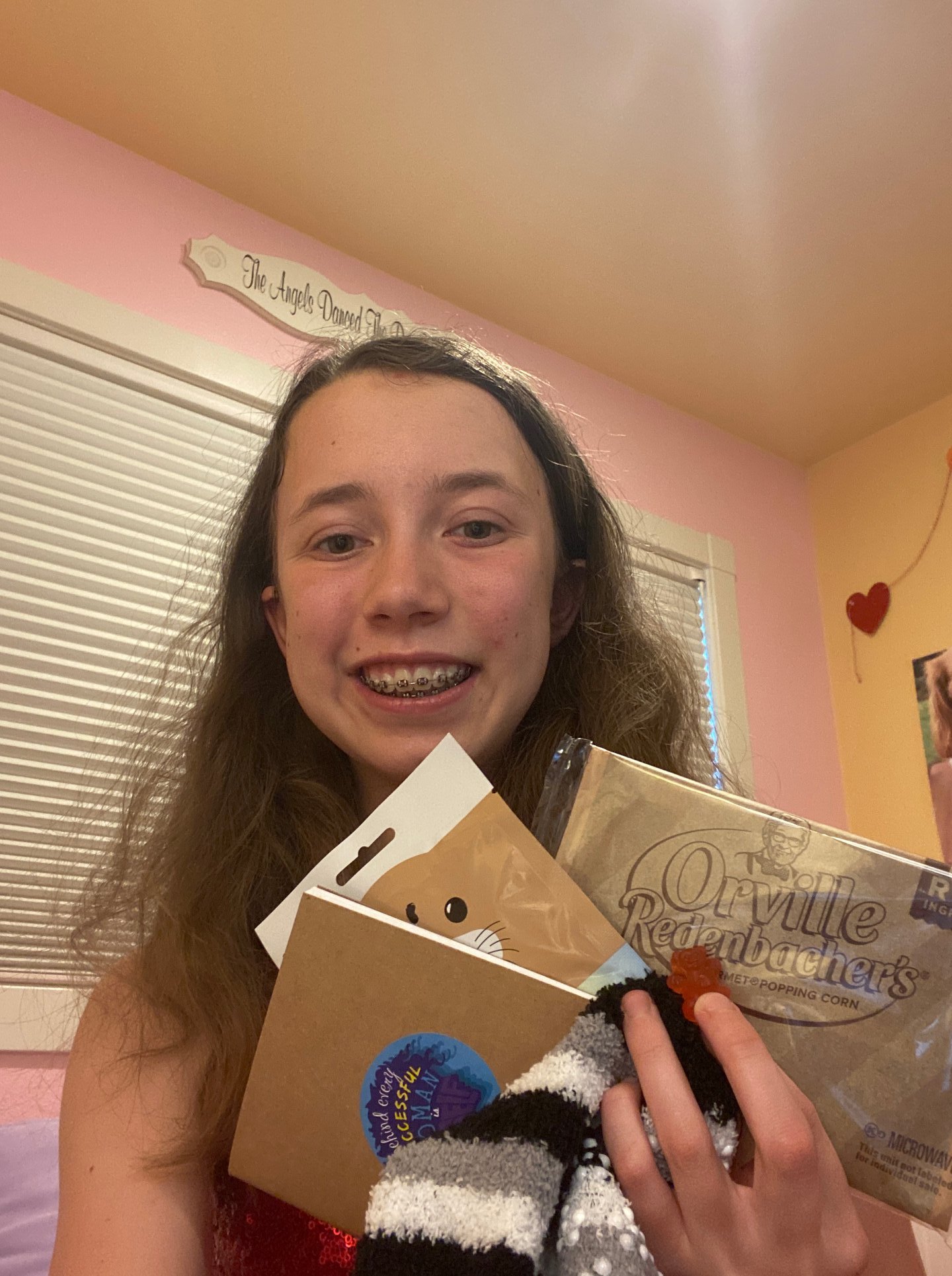How might we empower young women to use their voice to create a better world for themselves and others?
In the summer of 2021, the Empow[HER] team came together to create a summer summit called Empow[HER] On: Climbing Your Mountain. After a year and a half of dealing with the hardships COVID caused for the Boise community, this group of high school students wanted to create a space that allowed for seventh and eighth grade girls to build connections as well as develop skills to help with overcoming obstacles. This was a two day summit that included a movie night and sleepover at One Stone HQ.
On the first day, the team took the participants up into the foothills for dinner, a hike and an activity centered around practicing vulnerability and sharing a story of when you had to overcome an obstacle. After dinner and sharing space and time, the group went on a hike representing their overcoming obstacles by working together to climb to the top of the mountain. The night concluded with a sleepover at One Stone Headquarters.
To maintain COVID protocols each girl brought their own sleeping gear and was separated with six feet of distance. The next morning, guides and participants walked over to the Idaho History Museum to tour the Trailblazing Women section. Afterward, everyone came back to One Stone HQ to participate in some more activities. One of them was decorating a tiny pot to put a plant in, and at the bottom of the pot putting a piece of paper with a struggle you are having in the bottom of the pot. Then putting soil and a flower over the top to represent that even though life is sometimes hard, it also helps us grow into something beautiful. The young students also created cards about inspirational women in their lives. It could be someone they knew or someone famous who they looked up to.
Fast Facts Sheet
Year(s): Summer 2021
Focus: Female empowerment
Recipients: 7th and 8th grade girls
Community partner: Idaho History Museum
Number of recipients: 20
Number of One Stone members involved in planning: 5-7
Number of weeks of planning: 10
How many hours it took to prepare for implementation: 20
How many hours it took to implement: 15


